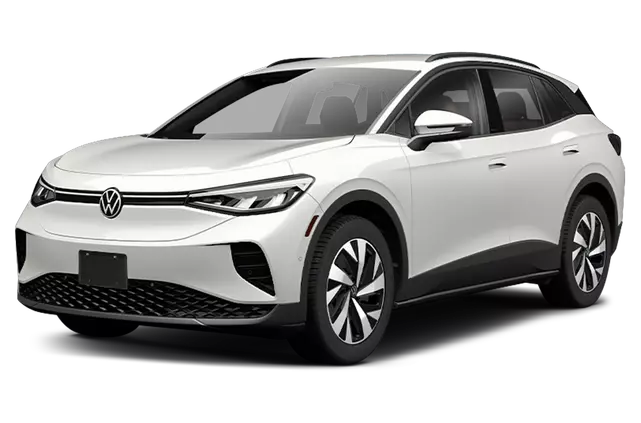Electric cars (EVs) have become very popular as the world moves toward more environmentally friendly ways to get around.
As the fight against climate change gets tougher, countries worldwide are working together to adopt clean and green ways to move around. Some countries have come out on top and are leading toward an electric future.
In this article, we answer the question, “What countries have the most EV drivers?” and look at the pioneers who have used the power of electric mobility to start a greener change.
The Global Ev Revolution: Which Countries Are Leading The Way?
The global Electric Vehicle (EV) change is underway, with a significant shift toward better and more sustainable transportation. As countries try to reduce greenhouse gas pollution and fight climate change, EVs have become a top concern. Several countries have taken the lead in this change, making significant strides in EV infrastructure, production, and acceptance rates.
This note looks at the top countries leading the way in the electric vehicle (EV) change, including those with the most EVs per person, the most significant part of the EV market, and the best ability to make EVs. It also details what makes people in these countries want to buy EVs.
Electric vehicles (EVs) are taking over the world, and some countries are leading the way. In 2022, more than 50% of all new cars sold in Norway will be electric cars. It makes Norway the clear winner. Iceland, the Netherlands, Sweden, and Denmark are also places where EVs are used a lot.
The Top 10 Countries With The Most Evs Per Capita
These countries have shown a strong commitment to promoting the use of electric vehicles and have implemented successful strategies. By offering financial benefits, building charging infrastructure, and ensuring the rules are fair, many people have switched to electric transport.
Because of this, a significant number of EVs are owned by each individual. Their efforts contribute to reducing greenhouse gas emissions, improving air quality, and accelerating global progress toward more environmentally responsible modes of transportation.
- Norway
Norway is the world leader in EVs per 1,000 people, with 92,2 EVs per 1,000 people. It was made possible by the government’s generous benefits, such as tax breaks, free use of toll roads, and accessible public charging facilities.
- Iceland
Iceland is known for having a lot of green energy sources, mainly hydropower and geothermal power. The country has actively encouraged using electric cars to reduce reliance on foreign fossil fuels. There are 89.1 EVs for every 1,000 people in the country. Iceland encourages electric vehicle purchases with lower import taxes, registration fees, and bus lanes.
- Netherlands
The Netherlands has made much progress in getting people to use electric cars. There are now 81.0 EVs for every 1,000 people. The government has implemented several policies and rewards, such as grants, tax breaks, and charging infrastructure that is easy to use. The country has many charging stations for electric car owners.
- Sweden
As part of its plan to become carbon neutral, Sweden has been actively pushing electric cars. There are now 77,3 EVs for every 1,000 people in the country. The government offers many benefits, like tax breaks and grants for buying electric cars. Sweden has invested in charging stations, making electric car purchases easier.
- Denmark
Denmark has been at the front of the pack regarding clean energy and green transportation. Tax breaks, lower registration fees, and free parking for 76.2 EVs per 1,000 people are ways the government encourages people to buy EVs. Denmark has a well-developed charging network, which makes it easy for people with electric cars to charge them.
- United Kingdom
The UK has actively promoted using electric vehicles to decrease carbon emissions and air pollution. There are now 63.2 EVs for every 1,000 people. The government gives funds and tax breaks to people who buy EVs. The government has also put money into building more charging stations so everyone can use them.
- Switzerland
The number of electric cars in Switzerland has been slowly increasing, and now there are 62.2 EVs for every 1,000 people. The government offers different rewards, such as discounts on purchases, tax breaks, and no-road taxes. Switzerland has also invested in a reliable charging network for EVs.
- Finland
With 59.1 EVs per 1,000 people, Finland is doing a lot to promote electric transport. It is done through a mix of incentives and building infrastructure. EV drivers can get help paying for their cars and tax breaks from the government. Finland has invested in its public and private charging networks.
- Germany
Germany, which makes more cars than any other country, has been trying to increase the number of electric vehicles to 57.8 per 1,000 people. The government encourages EV users to buy tax breaks and exemptions. Germany is building ultra-fast charging points along roads to help people who worry about running out of battery power.
- Austria
As part of its efforts to meet its climate goals, Austria has been pushing electric cars hard. The government gives tax breaks and grants to people who buy EVs. There are 56.7 EVs for every 1,000 people. Austria has also put money into growing its charging infrastructure to make it easier for EV drivers to charge their cars.
Powering Ahead: Countries With The Largest Ev Market Share
These countries with the most electric vehicles (EVs) on the market are leading the world toward more environmentally friendly transportation. In addition to promoting electric cars, they invest in charging stations, research and development, and collaboration between the government, businesses, and universities.
As the market for electric vehicles (EVs) continues to grow, we expect more countries to join this list and contribute to the green mobility change. By using electric cars, we move closer to a world where clean energy is used, and the planet is healthier.
China
China, the most populous nation in the world, has undoubtedly taken the top spot in the EV market. With a mind-boggling 59.0% market share, China has made outstanding progress in promoting the use of electric vehicles.
To encourage the manufacturing and use of EVs, the Chinese government has implemented ambitious measures, including subsidies, tax incentives, and strict pollution laws. Another benefit of the Chinese EV market is a solid local auto sector, which includes companies like BYD, NIO, and Xpeng Motors.
United States
With a market share of 15.0%, the United States of America, which is well-known for its technological acumen and innovation, has the second-largest proportion of the EV market. In recent years, there has been a discernible increase across the nation in the number of people opting to purchase electric automobiles.
This development may be attributed to several causes, including federal tax subsidies for the purchase of electric vehicles, incentives at the state level, and the expansion of charging infrastructure. Tesla, General Motors, Ford, and a host of other established and new manufacturers are some of the key players in the electric vehicle industry in the United States.
Germany
The electric car revolution in Europe has been led by Germany, known worldwide for its engineering skills. With a 10% market share, Germany is a critical player in shaping the future of electric transport.
Volkswagen, BMW, and Mercedes-Benz, three of the country’s most prominent car companies, have invested a lot of money into electric vehicle technology and are making new electric models to meet the growing demand. Germany also has an extensive charging site network and has established rules and financial incentives to encourage more people to buy electric vehicles.
France
With a 9.0% market share, France has become the leader in the EV market. The government has taken many steps to get people to buy electric cars, such as offering cash incentives and tax credits.
French companies like Renault, Peugeot, and Citron have made much progress in electric car technology and offer a wide range of electric models. Also, France has been expanding its charging facilities to make it easier for EV drivers to charge their cars.
Norway
Norway is known for how much it cares about the environment, and its 8.0% market share in the EV field is a big deal. The Norwegian government has set up several benefits to encourage people to buy electric cars, such as tax breaks, free tolls, and free charging.
Because of this, Norway has one of the world’s highest rates of electric car use. Notably, the country wants to stop selling new gasoline and diesel cars by 2025, speeding up the switch to EVs even more.
Why Are These Countries Leading The Ev Charge?
High rates of EV use in these countries are because Many of these countries give big tax breaks, rebates, and free parking to encourage people to buy electric cars. These countries have put a lot of money into public charging stations, making it easy for people who drive electric vehicles to find places to charge them.
Many people in these countries care about the environment and seek ways to lower their carbon footprint. Getting around in electric cars is a great way to do this. In the past few years, electric cars have become cheaper and more technologically advanced, which has made them more appealing to customers.
Conclusion
The rise of electric cars (EVs) shows that the world is moving toward more environmentally friendly and healthy transportation. Several countries have taken the lead in this global electric vehicle (EV) revolution, showing they are serious about lowering greenhouse gas pollution and fighting climate change.
China has an amazing 59.0% of the EV market, making it the country with the most EVs. China’s commitment to electric transportation is clear from its bold steps, like grants, tax breaks, and strict pollution laws. China’s dominance in the EV market is also helped by its well-known automakers like BYD, NIO, and Xpeng Motors.
The United States comes in second with a 15.0% market share. It is due to government tax subsidies, benefits at the state level, and the growth of charging infrastructure. Germany and France are also very important to the future of electric transportation. Their well-known automakers are putting a lot of money into electric car technology and making a wide range of electric models available.
As the market for electric vehicles (EVs) grows, more countries are likely to join the winners, which will help make the future cleaner and more sustainable. The change toward clean energy on a global scale and the growing popularity of electric cars are significant steps toward an era where green transportation is the rule.


